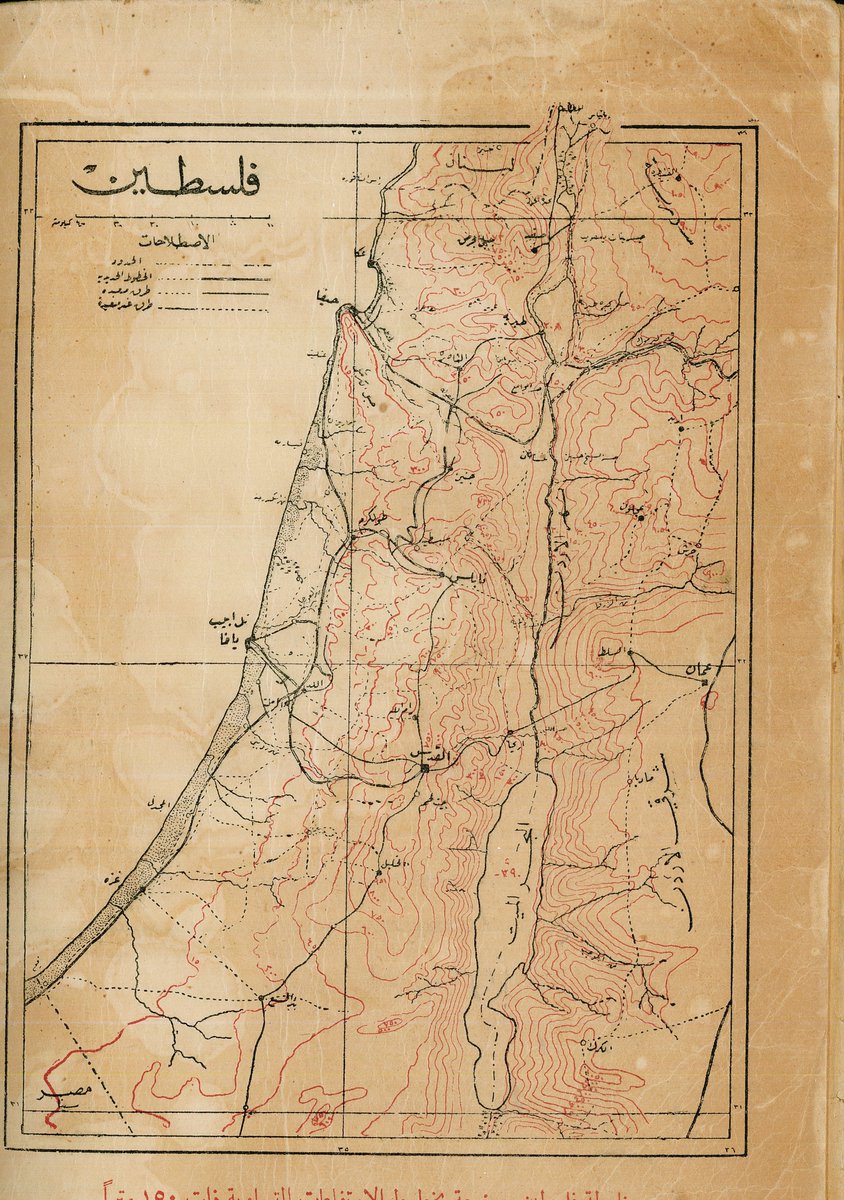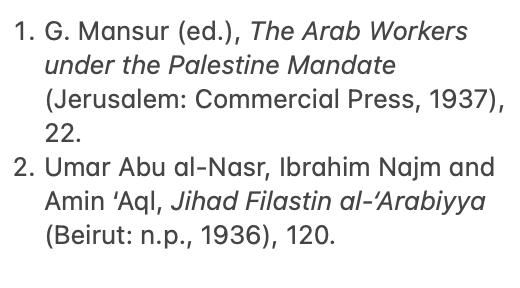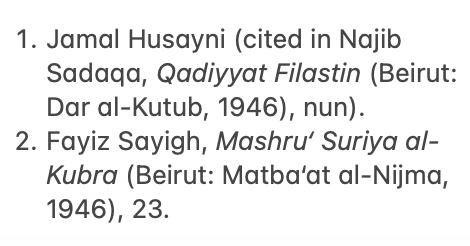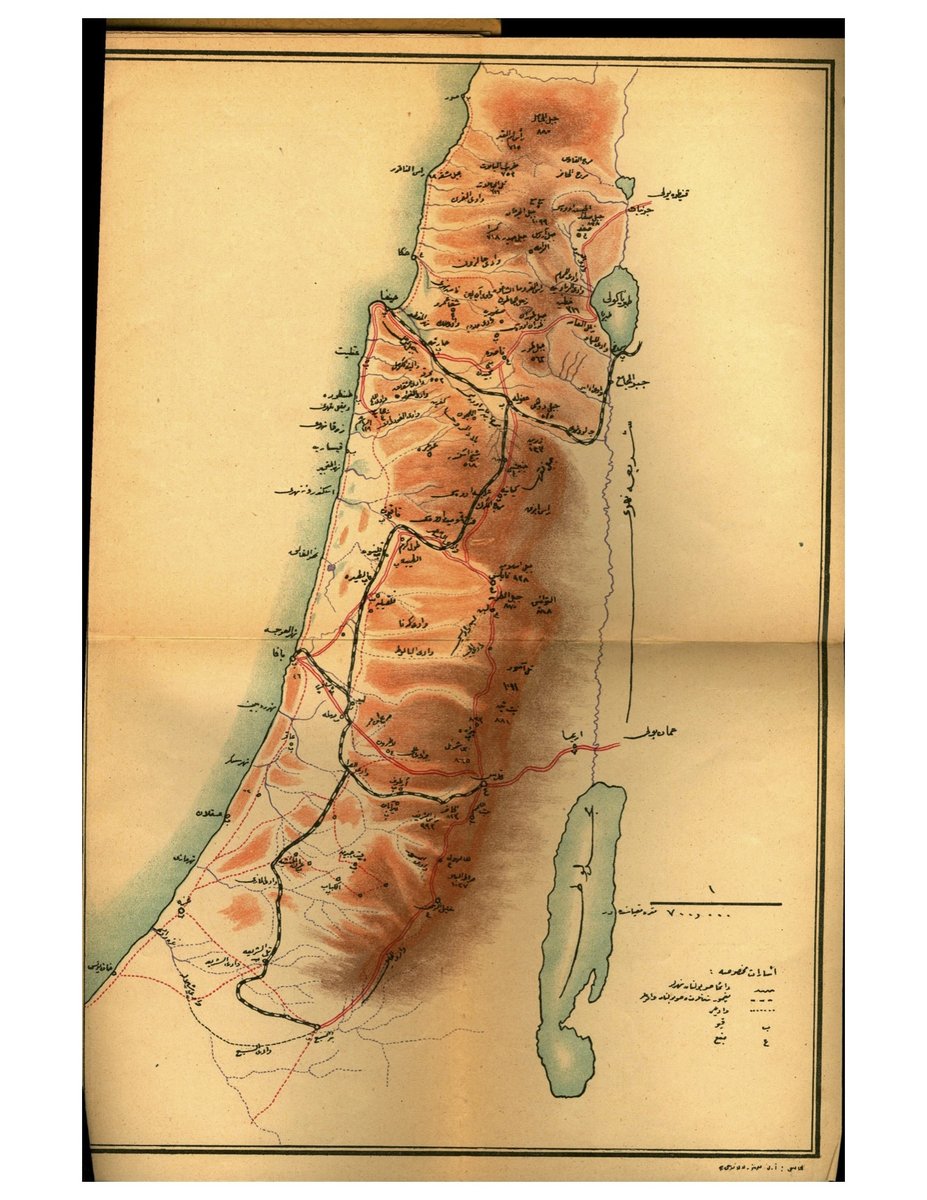
Zionists have been trying to ‘ctrl-alt-delete’ the Palestinian people from the historical record for more than a century.
In this thread, I document usages of the term, “Palestinians,” from its earliest appearances in the late 19th century to the late 1940s. A 🧵
In this thread, I document usages of the term, “Palestinians,” from its earliest appearances in the late 19th century to the late 1940s. A 🧵

This thread covers the 170+ appearances of the term “Palestinian” found in Arabic sources from 1898-1914.
https://twitter.com/_ZachFoster/status/1425227968150839304
This thread explores how Palestinians used the term "Palestinian" in the 1920s
https://twitter.com/_ZachFoster/status/1607885067740917760
From 1920s-1950s, many Arabs emphasized that “Palestinians” played a key role in the pre-WWI Arab literary & cultural movements, Faysal’s army & the Syrian Arab Congress.
See screenshot for a list of Arab sources, w/ page numbers, referencing 'Palestinians' in this context:
See screenshot for a list of Arab sources, w/ page numbers, referencing 'Palestinians' in this context:

Other Palestinian writers were keen to emphasize from the 1920s-1930s that “non-Palestinian” or “Syrian” families, especially the Sarsuqs, sold “Palestinian land” to Zionists in the 1930s: 

1. Constantine Thuyudri (1928) wrote a novel in focusing on an “Egyptian and Palestinian author.”
2. Muhammad ‘Ali Tahir (1948): "some believed that Palestine was not the exclusive property of the Arab Palestinians, but rather the entire Arab World."
See screenshot for sources
2. Muhammad ‘Ali Tahir (1948): "some believed that Palestine was not the exclusive property of the Arab Palestinians, but rather the entire Arab World."
See screenshot for sources

1. Jamal Husayni (1946): if the Arab states failed to defend Palestine, “non-Palestinian Arab blood” would flood the valleys & plains of every country in the region.
2. Fayiz Sayigh (1946): “the Palestinians” had rejected the Balfour Declaration along w the other Arab peoples
2. Fayiz Sayigh (1946): “the Palestinians” had rejected the Balfour Declaration along w the other Arab peoples

Musa al-‘Alami [‘Ibrat Filastin (Beirut: n.p., 1949), 5] argued that during the first phase of the battle for Palestine in 1948, "the Palestinians" were responsible for defending Palestine, while in the second phase, the Arab armies were.
‘Arif al-‘Arif [Tarikh al-Quds (Cairo: Dar al-Ma‘arif, 1951), 128] wrote that the Turks executed many heroes during the Great War, including four ‘Palestinians.’
If you want Palestine content like this in your inbox, you can add your email here: PalestineNexus.com
#FreePalestine
#FreePalestine

• • •
Missing some Tweet in this thread? You can try to
force a refresh








